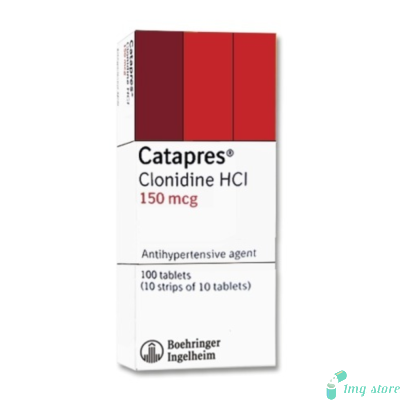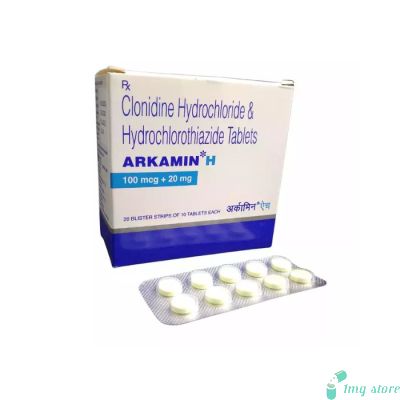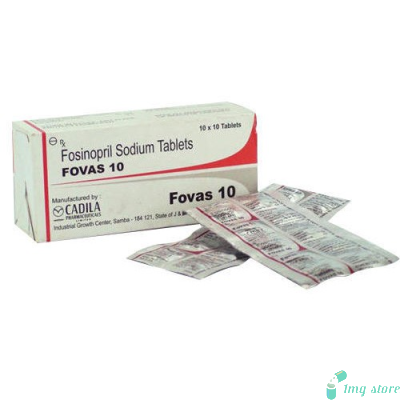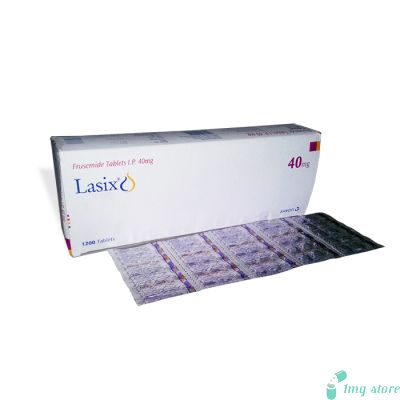Frenin Injection (Phenylephrine)
Phenylephrine injection is primarily used for its effects on blood vessels, making it useful in a variety of medical situations. Immphentiv is another brand name for Phenylephrine.
Introduction of Frenin Injection (Phenylephrine)
Phenylephrine injection, also known by its brand name Frenin, is a medication commonly used in medical settings. It belongs to a class of drugs called sympathomimetic agents, which work by stimulating certain receptors in the body to produce vasoconstriction (narrowing of blood vessels). This narrowing helps to increase Blood Pressure and decrease congestion in certain areas of the body. Phenylephrine injection is primarily used for its effects on blood vessels, making it useful in a variety of medical situations.
Immphentiv is a specialized formulation of Phenylephrine Injection, marketed under the brand name Frenin. It is an intravenous medication used to increase blood pressure and reduce congestion by constricting blood vessels. Immphentiv is primarily indicated for the treatment of hypotension (low blood pressure), especially during anesthesia or in cases of septic shock. It can also be used in managing hypotension during pregnancy and certain eye surgeries. As an intravenous medication, Immphentiv is administered by healthcare professionals in a controlled medical setting to ensure its proper use and dosage. Its effectiveness and safety make Immphentiv a valuable option for addressing low blood pressure and related conditions.
Buy Phenylephrine Injection: Phenylephrine injection is a prescription medication and can only be obtained with a valid prescription from a healthcare professional. It is typically available on our website. To buy a Phenylephrine injection, you will need to consult your healthcare provider and obtain a prescription.
Phenylephrine Injection Dosage Information:
The dosage of Phenylephrine injection should be determined by a healthcare professional based on your specific medical condition. It is important to follow the prescribed dosage instructions carefully. The medication is typically administered intravenously, and the dosage may be adjusted depending on factors such as your age, weight, and response to treatment. Dosage information for Phenylephrine injection (Frenin) may vary depending on the specific medical condition being treated and the individual patient's response to the medication. It is essential to follow the dosage instructions provided by the healthcare professional. Phenylephrine injection is typically administered by healthcare professionals in a hospital or clinical setting. The dosage may be adjusted based on factors such as the patient's age, weight, and overall health.
For the treatment of hypotension (low blood pressure), the usual starting dose of Phenylephrine injection is 100 to 180 mcg (micrograms) given intravenously (IV). The dose may be repeated as needed, usually at intervals of 10 to 15 minutes, until the desired blood pressure is achieved. The maximum daily dose should generally not exceed 2 mg (milligrams). During anesthesia, Phenylephrine injection may be used to maintain blood pressure. The dosage may vary depending on the patient's individual response and the specific anesthetic regimen. Healthcare professionals will determine the appropriate dose and administration schedule based on the patient's needs and the surgical procedure being performed. For nasal congestion relief, Phenylephrine injection is typically not the first-line treatment. Other forms of Phenylephrine, such as nasal sprays or oral formulations, are more commonly used for this purpose. The dosage of Phenylephrine injection for nasal congestion relief, if used, will depend on the severity of the congestion and the healthcare professional's judgment.
It is crucial to remember that Phenylephrine injection is a prescription medication and should only be administered by healthcare professionals who are trained in its proper use. The dosage and administration of Phenylephrine injection should be determined by a healthcare professional based on the individual patient's specific medical condition and response to treatment.
Affordable Phenylephrine Products:
The cost of Phenylephrine injection can vary depending on various factors such as the brand, dosage strength, and location. To find affordable Phenylephrine products, it is recommended to compare prices at different pharmacies or online platforms. Additionally, some pharmacies may offer discounts or generic versions of the medication, which can be more cost-effective options. It is important to ensure that any generic product you purchase is approved by regulatory authorities to ensure safety and efficacy.
In conclusion, Phenylephrine injection (Frenin) is a medication commonly used in medical settings for various purposes. It is primarily used to increase blood pressure and reduce congestion by constricting blood vessels. Phenylephrine injection is used in the treatment of hypotension, during anesthesia, for nasal congestion, in certain eye surgeries, in septic shock, and in managing hypotension during pregnancy. It is an immphentiv formulation designed for intravenous administration. Phenylephrine injection can only be obtained with a prescription and the dosage should be determined by a healthcare professional. To find affordable Phenylephrine products, it is advisable to compare prices and explore options such as generic versions while ensuring their regulatory approval.
Here are some important precautions to keep in mind, When using Phenylephrine injection (Frenin)
Hypertension: Phenylephrine injection is primarily used to increase blood pressure. However, it should be used with caution in individuals with hypertension (high blood pressure). Close monitoring of blood pressure is essential in such cases to prevent excessive elevation of blood pressure.
Cardiovascular Disease: Patients with cardiovascular diseases such as coronary artery disease, angina, arrhythmias, or heart failure should use Phenylephrine injection cautiously. The medication can potentially exacerbate these conditions by increasing Heart rate and Blood pressure. Regular cardiovascular assessments are necessary in these cases.
Diabetes: Phenylephrine injection may affect blood glucose levels and can interfere with the management of diabetes. Diabetic patients should monitor their blood sugar levels closely while using this medication, as it may cause fluctuations in glucose levels.
Thyroid Disease: Individuals with thyroid disease, especially those with an overactive thyroid (hyperthyroidism), should use Phenylephrine injections cautiously. The medication can further stimulate the thyroid gland and potentially worsen the symptoms of hyperthyroidism.
Prostate Disorders: Phenylephrine injection can cause urinary retention and worsen symptoms in individuals with prostate disorders, such as benign prostatic hyperplasia (BPH). It should be used with caution in these cases and discontinued if urinary symptoms worsen.
Glaucoma: Phenylephrine injection can increase intraocular pressure and may worsen the symptoms of glaucoma. Individuals with glaucoma should use this medication with caution and under the supervision of an ophthalmologist.
Allergies: Inform your healthcare provider if you have any known allergies or hypersensitivity reactions to Phenylephrine or other sympathomimetic agents. Allergic reactions can range from mild skin rashes to severe anaphylaxis, a life-threatening allergic reaction. Prompt medical attention should be sought if any allergic reactions occur.
Pregnancy and Breastfeeding: The safety of Phenylephrine injection during pregnancy and breastfeeding has not been well-established. It is important to consult with a healthcare professional before using this medication in these situations to weigh the potential risks and benefits.
Best Application of Frenin Injection (Phenylephrine)
Hypotension: Phenylephrine injection is commonly used to treat hypotension, a condition characterized by low blood pressure. By constricting blood vessels, it helps to raise blood pressure and improve perfusion to vital organs.
Anesthesia: Phenylephrine injection is often used during anesthesia to help maintain blood pressure and prevent a drop in blood flow to organs during surgical procedures.
Nasal Congestion: Phenylephrine injection can be used to alleviate nasal congestion caused by conditions such as allergies or the common cold. It acts as a decongestant by narrowing the blood vessels in the nasal passages, reducing swelling and congestion.
Eye Surgery: In certain eye surgeries, Phenylephrine injection is used to dilate the pupil and reduce bleeding in the eye. It helps the surgeon to have a clear view of the surgical site and facilitates the procedure.
Septic Shock: Phenylephrine injection may be administered in cases of septic shock, a life-threatening condition characterized by low blood pressure and organ dysfunction. It helps to increase blood pressure and improve organ perfusion in these critical situations.
Hypotension during Pregnancy: Phenylephrine injection is sometimes used to manage hypotension in pregnant women. It can help maintain adequate blood pressure during labor and delivery, reducing the risk of complications.
Some of The After Effects of Phenylephrine injection
Like all medications, Phenylephrine injection can cause side effects. These side effects may vary in severity and can affect different individuals differently. Common side effects associated with Phenylephrine injection include:
Increased Blood Pressure: As Phenylephrine injection is primarily used to increase blood pressure, one of the common side effects is elevated blood pressure. It is important to monitor blood pressure regularly during treatment.
Headache: Headaches are a common side effect of Phenylephrine injection. The increase in blood pressure can contribute to the development of headaches in some individuals.
Nervousness and Restlessness: Some individuals may experience feelings of nervousness, restlessness, or anxiety after receiving a Phenylephrine injection. These symptoms usually resolve once the medication wears off.
Nausea and Vomiting: Phenylephrine injection can occasionally cause gastrointestinal symptoms such as nausea and vomiting.
Dizziness and Lightheadedness: Phenylephrine injection may cause dizziness or lightheadedness, particularly when standing up or changing positions quickly. It is important to move slowly to prevent falls or accidents.
Arrhythmias: In rare cases, Phenylephrine injection can cause changes in heart rhythm, leading to palpitations or irregular heartbeat. Individuals with pre-existing heart conditions may be at higher risk.
Insomnia: Some individuals may experience difficulty sleeping or insomnia after receiving a Phenylephrine injection. It is advisable to avoid using the medication close to bedtime to minimize this side effect.
Sweating: Increased sweating, especially in higher doses, is another potential side effect of Phenylephrine injection.
These side effects are not exhaustive, and individuals may experience other side effects not mentioned here. If any side effects persist, worsen, or cause significant discomfort, it is important to seek medical attention promptly.
Queries - Frenin Injection (Phenylephrine)
Can Phenylephrine injection be used for the treatment of low blood pressure caused by dehydration?
Answer: Phenylephrine injection is primarily used to increase blood pressure. However, in cases of low blood pressure caused by dehydration, the underlying cause should be addressed first. Rehydration with intravenous fluids is typically the initial approach to manage dehydration-induced low blood pressure. Phenylephrine injection may be considered if other measures fail to restore blood pressure to the desired level, but its use should be carefully evaluated by a healthcare professional.
Is Phenylephrine injection safe for use in elderly patients with hypertension?
Answer: Phenylephrine injection should be used with caution in elderly patients with hypertension (high blood pressure). Close monitoring of blood pressure is essential to prevent excessive elevation of blood pressure. The healthcare provider will carefully evaluate the risks and benefits of Phenylephrine injection in these individuals, taking into consideration their overall health status, medical history, and other medications they may be taking.
Can Phenylephrine injection be used to treat nasal congestion caused by allergies?
Answer: Yes, Phenylephrine injection can be used to alleviate nasal congestion caused by allergies. It acts as a decongestant by narrowing the blood vessels in the nasal passages, reducing swelling and congestion. However, it is important to note that Phenylephrine injection is usually administered in medical settings and may not be the first-line treatment for allergic nasal congestion. Over-the-counter nasal sprays or oral antihistamines are often considered as initial options, and Phenylephrine injection may be reserved for severe cases or when other treatments have not been effective.
Are there any dietary restrictions while using Phenylephrine injection?
Answer: There are no specific dietary restrictions associated with Phenylephrine injection. However, it is always advisable to maintain a balanced diet and stay hydrated to support overall health. If you have any specific dietary concerns or are on a restricted diet due to other medical conditions, it is recommended to discuss with your healthcare provider for personalized advice.
Can Phenylephrine injection be used during pregnancy for managing low blood pressure?
Answer: Phenylephrine injection may be considered for managing low blood pressure during pregnancy, but it should be used with caution. The safety of Phenylephrine injection during pregnancy has not been well-established, and the potential risks and benefits need to be carefully assessed by a healthcare professional. Close monitoring of blood pressure and fetal well-being is essential when using Phenylephrine injection during pregnancy. It is important to consult with a healthcare provider who can provide personalized recommendations based on the individual's specific situation and medical history.
Some Of The Common Drug Connections with Frenin Injection (Phenylephrine)
Phenylephrine injection may interact with other medications, potentially altering their effects or increasing the risk of side effects. It is important to inform your healthcare provider about all the medications you are currently taking, including prescription drugs, over-the-counter medications, herbal supplements, and vitamins. Here are some common drug interactions to be aware of:
Monoamine Oxidase Inhibitors (MAOIs): Phenylephrine injection should not be used in individuals who have taken MAOIs within the past 14 days. Concurrent use of these medications can lead to a severe increase in blood pressure, resulting in a hypertensive crisis.
Beta-blockers: When Phenylephrine injection is used concomitantly with beta-blockers, the effects of both medications may be antagonized. Beta-blockers block the effects of Phenylephrine on blood vessels, potentially reducing its effectiveness.
Tricyclic Antidepressants (TCAs): TCAs may enhance the vasoconstrictive effects of Phenylephrine injection, leading to a potentially severe increase in blood pressure. Close monitoring of blood pressure is necessary when these medications are used together.
Other Sympathomimetic Agents: Concurrent use of multiple sympathomimetic agents, such as decongestants or bronchodilators, may lead to additive effects and increase the risk of cardiovascular side effects.
Alpha-blockers: Alpha-blockers, which are used to treat conditions like high blood pressure or benign prostatic hyperplasia, can interact with Phenylephrine injection, potentially decreasing its effectiveness. Adjustments in dosages may be necessary.
It is important to note that this is not an exhaustive list of drug interactions, and there may be other medications that can interact with Phenylephrine injection. Always consult with a healthcare professional or pharmacist for a comprehensive assessment of potential drug interactions.
| Manufacturer | : | Samarth Life Sciences Pvt Ltd |
| Equivalent Brand | : | Immphentiv |
| Generic Search | : | Phenylephrine |













